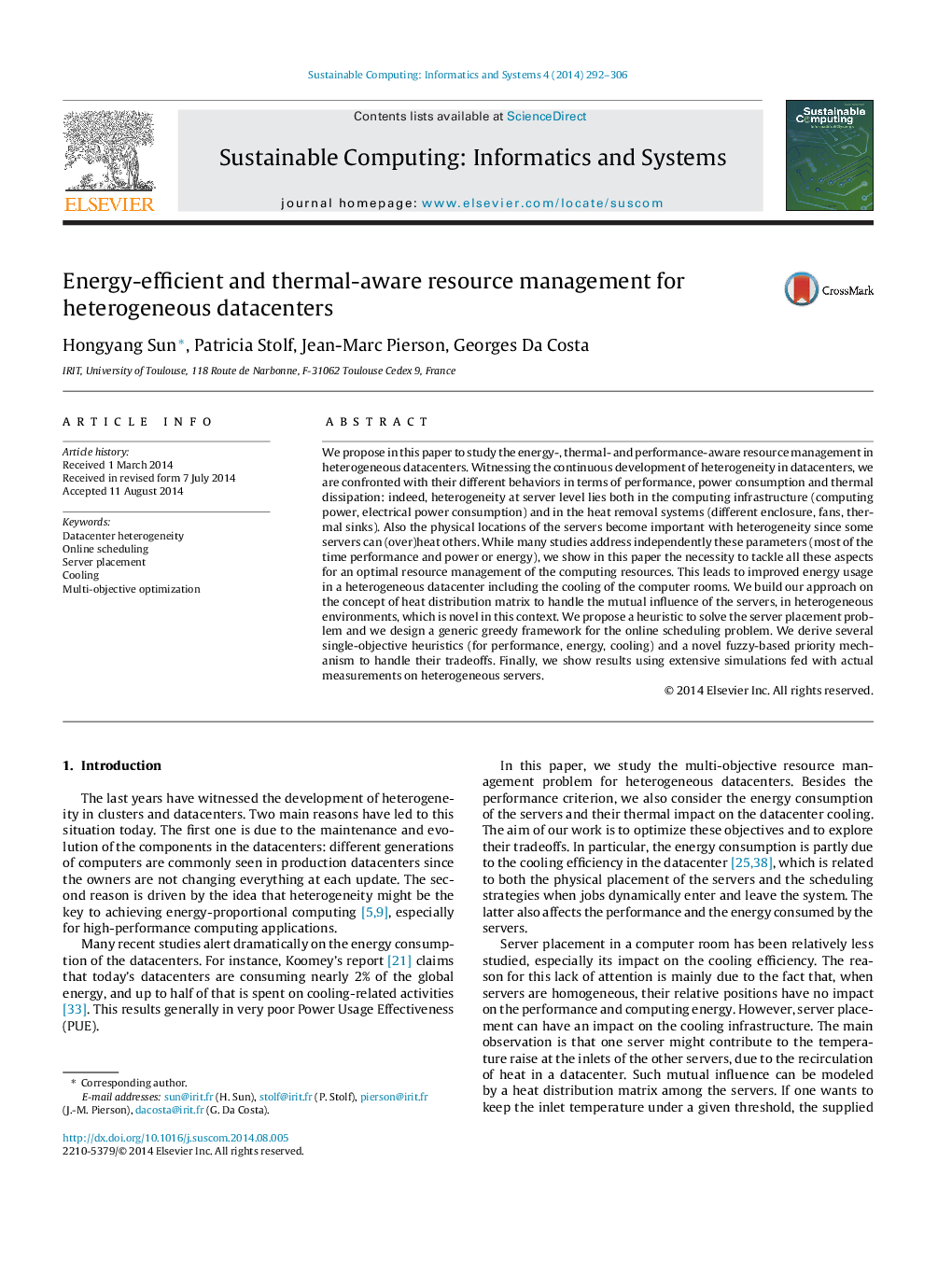| Article ID | Journal | Published Year | Pages | File Type |
|---|---|---|---|---|
| 493938 | Sustainable Computing: Informatics and Systems | 2014 | 15 Pages |
•We study energy-, thermal- and performance-aware scheduling in heterogeneous datacenters.•We present a heuristic for the placement problem of physical servers.•We design a greedy framework for the online scheduling of applications.•We propose a novel fuzzy-based priority rule to handle multiple conflicting objective.•The proposed approaches are evaluated using extensive simulations.
We propose in this paper to study the energy-, thermal- and performance-aware resource management in heterogeneous datacenters. Witnessing the continuous development of heterogeneity in datacenters, we are confronted with their different behaviors in terms of performance, power consumption and thermal dissipation: indeed, heterogeneity at server level lies both in the computing infrastructure (computing power, electrical power consumption) and in the heat removal systems (different enclosure, fans, thermal sinks). Also the physical locations of the servers become important with heterogeneity since some servers can (over)heat others. While many studies address independently these parameters (most of the time performance and power or energy), we show in this paper the necessity to tackle all these aspects for an optimal resource management of the computing resources. This leads to improved energy usage in a heterogeneous datacenter including the cooling of the computer rooms. We build our approach on the concept of heat distribution matrix to handle the mutual influence of the servers, in heterogeneous environments, which is novel in this context. We propose a heuristic to solve the server placement problem and we design a generic greedy framework for the online scheduling problem. We derive several single-objective heuristics (for performance, energy, cooling) and a novel fuzzy-based priority mechanism to handle their tradeoffs. Finally, we show results using extensive simulations fed with actual measurements on heterogeneous servers.
